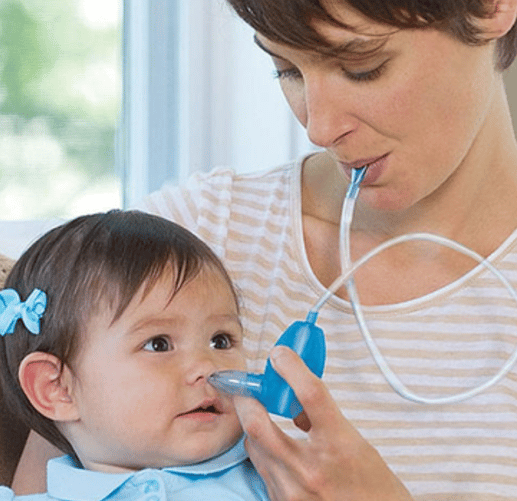Social creatures: health and wellness marketing to modern parents
June 30, 2020

Millennial parents have something the adults who raised them did not: 24/7 access to the internet via a portable, pocket-sized computer. Whether actively researching products or simply scrolling through their Instagram feeds, they are flooded with information about children’s health and the efficacy of different health solutions. What they perceive to be in short supply, however, is meaningful content.
As we pointed out in a recent article on Millennial moms, this is an audience that seeks answers before products. Smart health and wellness brands put themselves in the right place, with the right content, to provide it.
Understanding the real role of social media.
Brands must provide accurate, science-backed information if they want to capture the attention — and cultivate the trust — of young parents. That means being active on their favorite digital channels, from YouTube to publisher sites of all sizes.
And social media retains its position at the very top of this funnel. Facebook and Instagram excel at boosting brand awareness, connecting brands with social media influencers, and driving customer traffic to company websites — where Millennial parents can more deeply engage with rich, educational content. But the biggest opportunities to engage with millennial parents on social don’t necessarily exist on your brand’s Page.
Embrace the power of community.
Enter Facebook Groups. As the social media giant reports, “the average US millennial in a parent group is in more than 3x as many Facebook groups as the average US millennial group user who is not in a parent group.” Why? Many Millennial parents struggle to maintain active social lives once they have kids. Facebook Groups do more than allow these young mothers (and fathers) to connect on demand. They also give parents access to larger, inherently diverse peer groups ready to answer their questions and dispense parenting advice.
When it comes to the importance young parents attach to word of mouth, this Nielsen headline pretty much says it all: “Recommendations From Friends Remain Most Credible Form of Advertising Among Consumers.” That said, brands don’t necessarily have to be members of an inner circle to win the trust of today's moms. Digging deeper into the results of Nielsen’s Global Trust in Advertising survey reveals that Millennials consider “consumer opinions posted online” to be highly credible as well.
The upshot? Healthcare brands should leverage social channels to disseminate information about products benefits and recommended usage. They should also share real stories about real moms and dads, their problems and solutions, and show empathy toward young parents as much as possible. They should consider creating branded Facebook Groups to encourage conversation among customers — current as well as prospective. Finally, they mustn't overdo it with direct response, but focus instead on the kind of educational, actionable content that gives Dr. Mom every reason to return to the website over and over again.
Partner With Real Parents
Health and wellness brands created by real parents have developed cult-like followings by aggressively marketing their intimate knowledge of the problems parents face. For example, the Frida brand launched in 2007. At the time, Millennial parents resistant to the idea of treating stuffy noses with traditional antihistamines or decongestants began expressing a need for a safe, convenient, and non-invasive solution. Enter the Nosefrida, which was rebranded as The Snotsucker for the U.S. market.
They deployed messaging that highlighted their own parenting experience, assuring prospects that Frida understood what they were going through. Frida has since branched out from this initial success and now offers an ever-widening range of innovative products for babies as well as a new line — Frida Mom — targeting moms and addressing their own healthcare needs.

Embrace the right influencers
Of course, not every brand can go to market with a “made by parents, for parents” campaign. They can, however, involve Millennial parents in product testing and solicit their input via focus groups. Healthcare brands can also include influencers in their soft launches. Again, substance is the key to these campaigns’ success.
Forget the popular image of the influencer — an impossibly beautiful young person broadcasting their perfect life on Instagram. Healthcare brands should instead think of their influencer partners as beta users, reviewers, explainers, and product demonstrators. That is, as customers who can themselves win over other customers.
But how do influencers accomplish this? A skim of this article on “Instagram Influencer Moms” published by Parents magazine provides one clue — in it, the word “relatable” (or some variation thereof) appears over and over again. That said, relatability is a moving target. Sometimes, it expresses itself in upbeat, even joyous content about the rewards of parenting. At other times, it means conveying feelings of frustration and talking frankly about burnout — an experience reported by many of the Millennial moms responding to Motherly’s 2020 State of Motherhood Survey.
For Millennials, “in the moment” content is virtually synonymous with authenticity. As such, healthcare brands need to be creative when attempting to connect with them. Emotional appeals — subtle as well as overt — can succeed, but they are not the be-all and end-all. Science and facts matter to young moms. Remember: today's parents are socially and environmentally aware. They are price-conscious, but willing to pay a premium for products that reflect their values. And their own childhood experiences — like being nurtured in a hyperconnected environment, then living out their teen years during an age of rapidly expanding mobile technology — greatly inform their parenting styles.




